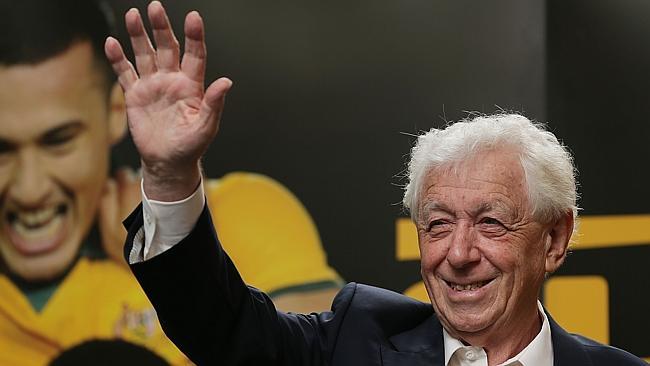Mall king Frank Lowy’s mission to enrich the nation
Jill Margo’s biography of Frank Lowy reveals a man driven to contribute beyond business.

Most Australians have had something to do with Frank Lowy, whether they know it or not. His Westfield shopping malls have become embedded in the suburban landscape, while his philanthropic works range from medical research to sport. By and large, he is seen as the acceptable sort of billionaire: self-made, approachable, even a bit self-effacing. Very Australian, somehow.
According to Jill Margo, the public image is a good match for the private person. She has written a previous biography of Lowy, Pushing the Limits (2001), which ended when he was about 70. Second Life covers the story since then, and the most striking thing — it surprises even Margo — is that Lowy has hardly slowed down even as he has moved into his mid-80s.
Margo uses the first section of the book to reprise Lowy’s early life: his childhood in eastern Europe, his family’s escape one step ahead of the Nazis, his experiences in Israel, his journey to Australia to join his refugee family. His first commercial adventure was a delicatessen aimed at the ethnic groups that sprang up in postwar Sydney. He grabbed the chance to acquire and redevelop a row of shops and quickly realised the best way to make money was to operate at the strategic level, with others doing the retail work. From there Westfield was a short and logical step.
Fast-forward to more modern times, with Lowy established in the upper levels of the rich and his company functioning as a multinational giant. Margo makes clear that for Lowy wealth has never been an end in itself; money is only as good as what it can do. This is not to say he disdains the concept of wealth: he has always made sure he is paid what he is thinks he is worth. Some people have said he takes too much but he responds that he adds a lot of value to the company. The claim is difficult to dispute, looking at Westfield’s returns for shareholders.
His business methodology is to do careful research, consider expert advice, look at the options, then add in his instincts. He applies the same pattern to other problems. When one of his sons was diagnosed with a rare eye disease, his response was to gather the best people in the field and fund them to find a solution. He found it frustrating that medical research did not work as systematically as business, but nevertheless the group has made some important breakthroughs.
Likewise, when Lowy started to think that Australian foreign policy was too short-term and opportunistic, he set up a think tank to make a contribution. The Lowy Institute has sometimes been criticised for being pro-Labor and pro-Israel but a close examination does not bear out the charge. It has provided an intellectual edge, as well as a link between academic thinking and practical policy that otherwise may be missing.
One of Lowy’s loves is soccer, and he has done a great deal to drag the sport out of the ethnic enclave and into the mainstream. Making it a viable commercial activity within Australia was hard enough; pushing it on to the world stage was even trickier. Navigating the rivalries and corruption of the global organisations made international business look easy, and the project of making Australian soccer into a serious force remains a work in progress. But progress is being made.
Perhaps the most interesting and heartfelt section of the book deals with Lowy’s attempt to “close the circle” of his father’s death in the Holocaust, at Birkenau concentration camp. He wanted a monument that was personal but not something to diminish the experiences of others. Eventually, he and the circle around him came up with the idea of restoring a train wagon of the type used to transport Jews to the camp. One was eventually found and placed at the Birkenau site. It seems like a perfect fit, and the book includes some touching photographs of the dedication ceremony. Anyone who may think that Lowy cares only about making money may want to take a look.
As Westfield has grown ever larger, Lowy has stepped back from day-to-day management and his sons have moved into significant roles. But he is clear he wants the final say in the company’s broad direction. The chapter dealing with Westfield’s move into Britain is a good demonstration of this.
Margo provides a good sense of her subject but this book is a long way from hagiography. Business has been a big part of Lowy’s life but far from the only part. And for all his success, he remains driven. Margo comments: “While he is an aggressive commercial animal, his internal gauge of achievement does not register the competition. When he played tennis, he would pit himself against his own last best performance. He had no difficulty congratulating an opponent. Congratulating himself was much harder. He rarely experiences lightness of being.’’
Is it a fair trade, achievement for contentment? Perhaps. One way or another, Lowy has made a difference. It is hard to say it has not been for the better.
Derek Parker is a freelance book reviewer.
Frank Lowy: A Second Life
By Jill Margo
HarperCollins, 528pp, $49.99 (HB)



To join the conversation, please log in. Don't have an account? Register
Join the conversation, you are commenting as Logout